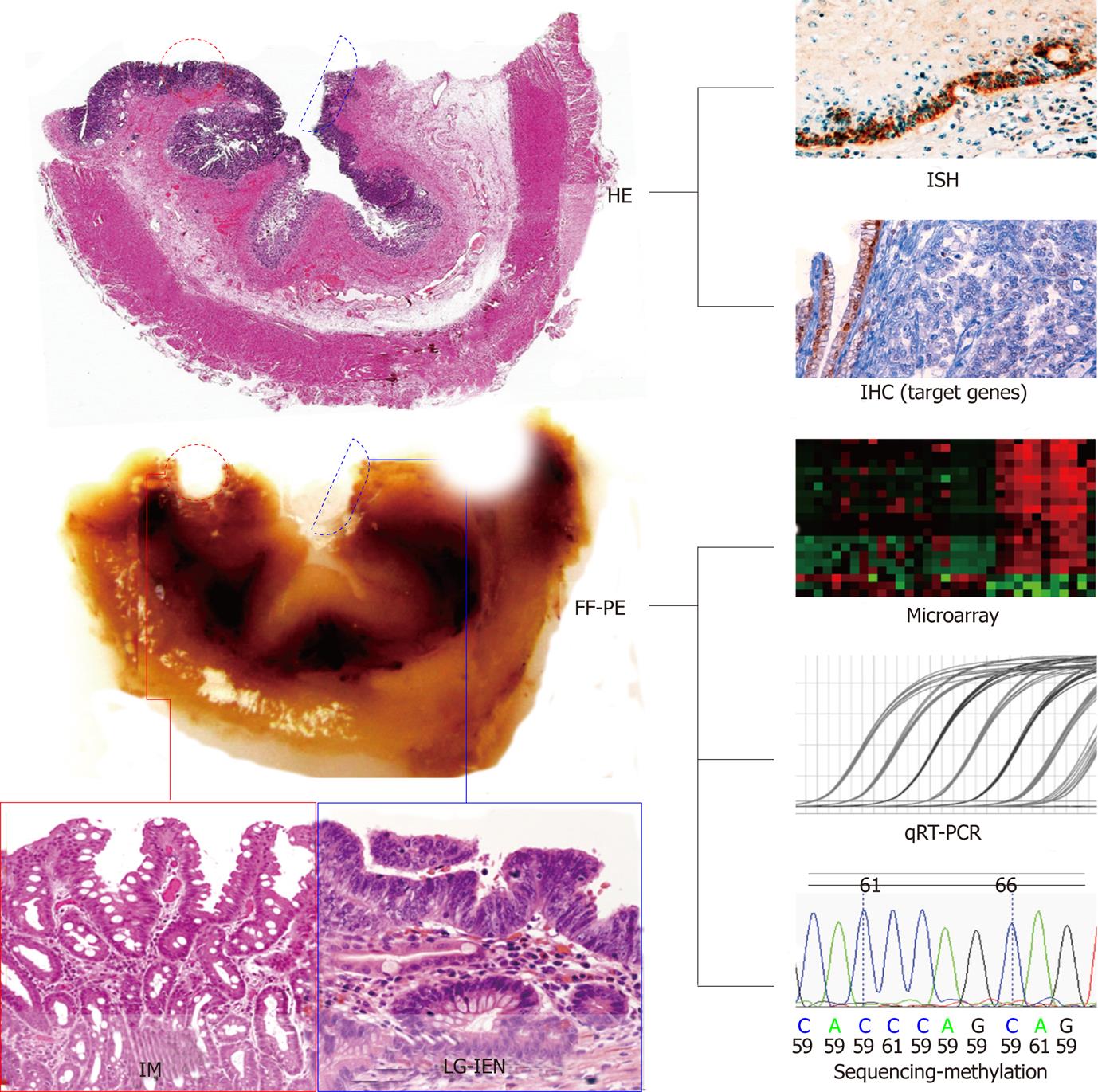Copyright
©2011 Baishideng Publishing Group Co.
World J Gastroenterol. Dec 28, 2011; 17(48): 5231-5239
Published online Dec 28, 2011. doi: 10.3748/wjg.v17.i48.5231
Published online Dec 28, 2011. doi: 10.3748/wjg.v17.i48.5231
Figure 1 miRNA analysis in formalin-fixed, paraffin-embedded samples.
Routine histological analysis (hematoxylin and eosin) enables adequate selection of preneoplastic lesions (in this case, intestinal metaplasia and low-grade-intraepithelial neoplastic lesions obtained from a resected Barrett’s adenocarcinoma specimen). Either miRNA-specific in situ hybridization or immunohistochemical analysis of the miRNA gene targets could be performed starting from the original paraffin block. To obtain total RNA or DNA, lesions are macro-dissected from the paraffin block (or micro-dissected from unstained formalin-fixed, paraffin-embedded sections). The genome material can be further analyzed using modern genomic techniques. HE: Hematoxylin and eosin; FF-PE: Formalin-fixed, paraffin-embedded; IM: Intestinal metaplasia; LG-IEN: Low-grade-intraepithelial neoplastic lesions; ISH: in situ hybridization; IHC: Immunohistochemistry; qRT-PCR: Quantitative reverse transcription-polymerase chain reaction.
- Citation: Fassan M, Croce CM, Rugge M. miRNAs in precancerous lesions of the gastrointestinal tract. World J Gastroenterol 2011; 17(48): 5231-5239
- URL: https://www.wjgnet.com/1007-9327/full/v17/i48/5231.htm
- DOI: https://dx.doi.org/10.3748/wjg.v17.i48.5231









